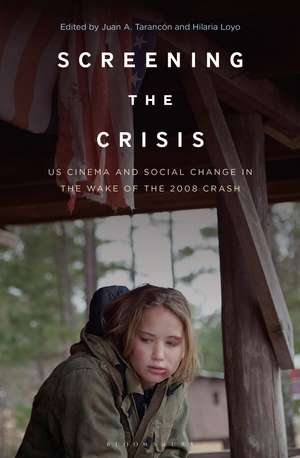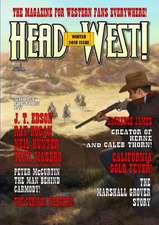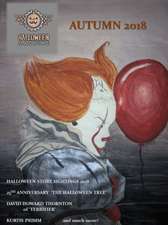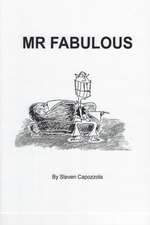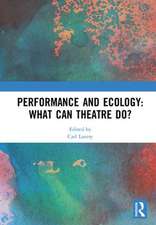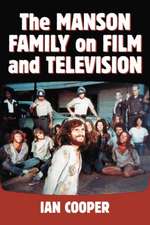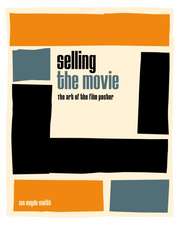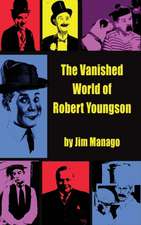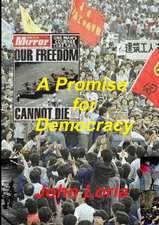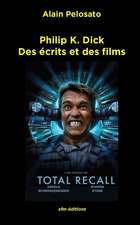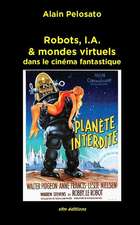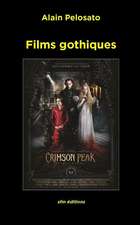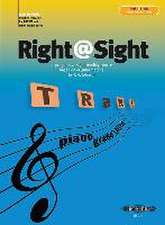Screening the Crisis: US Cinema and Social Change in the Wake of the 2008 Crash
Editat de Dr. Hilaria Loyo, Professor Juan A. Tarancónen Limba Engleză Paperback – 21 feb 2024
| Toate formatele și edițiile | Preț | Express |
|---|---|---|
| Paperback (1) | 193.70 lei 6-8 săpt. | |
| Bloomsbury Publishing – 21 feb 2024 | 193.70 lei 6-8 săpt. | |
| Hardback (1) | 600.22 lei 6-8 săpt. | |
| Bloomsbury Publishing – 10 aug 2022 | 600.22 lei 6-8 săpt. |
Preț: 193.70 lei
Preț vechi: 250.64 lei
-23% Nou
Puncte Express: 291
Preț estimativ în valută:
37.06€ • 38.80$ • 30.67£
37.06€ • 38.80$ • 30.67£
Carte tipărită la comandă
Livrare economică 05-19 aprilie
Preluare comenzi: 021 569.72.76
Specificații
ISBN-13: 9781501388163
ISBN-10: 1501388169
Pagini: 344
Ilustrații: 13 bw illus
Dimensiuni: 152 x 229 x 25 mm
Greutate: 0.46 kg
Editura: Bloomsbury Publishing
Colecția Bloomsbury Academic
Locul publicării:New York, United States
ISBN-10: 1501388169
Pagini: 344
Ilustrații: 13 bw illus
Dimensiuni: 152 x 229 x 25 mm
Greutate: 0.46 kg
Editura: Bloomsbury Publishing
Colecția Bloomsbury Academic
Locul publicării:New York, United States
Caracteristici
Addresses topical issues such as the widening income divide, the disappearance of community values, rising class segregation, growing racial and gender divisions, the dismantling of democratic institutions, the rise of totalitarianism, and environmental concerns
Notă biografică
Hilaria Loyo is Associate Professor at the University of Zaragoza, Spain. She has written mainly on Hollywood film stars, the cultural reception of Marlene Dietrich, the representation of whiteness and Hollywood female blondes, trauma studies and transnational exchanges in Isabel Coixet's films, and on the politics of space in cinema. Her work has appeared in various anthologies and journals. Her most recent publication can be found in The Velvet Light Trap (2019).Juan A. Tarancón is Lecturer at the University of Zaragoza, Spain. He has written on film genre theory, on representations of immigration and Mexican American culture, and on the work of John Sayles and Carlos Saura. His work has appeared in CineAction, Cultural Studies, The Quarterly Review of Film and Video, New Cinemas, and varied Spanish scholarly journals. He is co-editor of Global Genres, Local Films: The Transnational Dimension of Spanish Cinema (2016).
Cuprins
List of Figures AcknowledgementsNotes on ContributorsForeword: Crisis and Critique Timothy Corrigan (University of Pennsylvania, USA)Introduction: Cinema and the Age of CrisisJuan A. Tarancón (University of Zaragoza, Spain) and Hilaria Loyo (University of Zaragoza, Spain)I. US Cinema in the Age of Crisis1. It's Always Been Crisis: Hollywood HistoryToby Miller (University of California, Riverside, USA) and Bill Grantham (Loughborough University, UK)2. Independent Films in an Age of Crisis: Illuminating the Lives of Outsiders in Neoliberal AmericaCynthia Baron (Bowling Green State University, USA)II. Labor Crisis and the Neoliberal Subject 3. Limitless?: Neoliberal Femininity in the Post-recessionary Chick FlickBeatriz Oria (University of Zaragoza, Spain) 4. Screening Recessions through a Gendered Lens: Nostalgic and Critical Revisions of the Past from the Post-2008 Crisis PerspectiveElena Oliete-Aldea (University of Zaragoza, Spain) 5. Screening Neoliberlism in Nightcrawler and The Wolf of Wall StreetStephen Felder (Irvine Valley College, USA)III. Technology and the State of Surveillance6. The Shock Doctrines of The Social Network: Zuckerberg, Trump, and Surveillance Capitalism in Big-tech CinemaIan Scott (Manchester University, UK)7. "I Figured You were Probably Watching Us": Performing Gender and Citizen Surveillance in Ex-MachinaKayla Meyers (Independent Scholar, USA) IV. The Housing Crisis and the Home Question8. Stand Your Ground: Neoliberal Horrors, The Purge Franchise, and the Allegorical Moment of US TraumaTony Grajeda (University of Central Florida, USA)9. Horror, Race, and the Economics of Interiority: Homeowners in the Blumhouse UniverseLeah Pérez (University of Southern California, USA) and William J. Simmons (University of Southern California, USA)10. Resignifying the National Home: Gendered Domopolitics and Neoliberal Geographies of Exclusion in Debra Granik's CinemaHilaria Loyo (University of Zaragoza, Spain)V. Politics, Affect, and the Crisis of Public Values11. S. Craig Zahler and White Identity Auteurism in the Age of TrumpCarlos Gallego (St. Olaf College, USA)12. A Crisis of Confidence: Fracture and Malaise in the US Polity in Dragged Across Concrete Fabián Orán Llarena (University of La Laguna, Spain)13. "I Guess It Comes from Being Poor": Inequality, Affect, and Point of View in The Florida Project Juan A. Tarancón (University of Zaragoza, Spain)VI. Ecological Crisis and Visions of the Future 14. Who the Earth Is for: Reframing Rural Landscapes as Collective Polities in Leave No Trace and Beasts of the Southern WildTim Lindemann (Queen Mary University of London, UK) 15. Turning Over a New Leaf: Exploring Human-Tree Relationships in FilmVirginia Luzón Aguado (University of Zaragoza, Spain)VII. Crisis and Violence in the Borderlands 16. "No One to Call Around Here. These Boys Is on Their Own": The Postindustrial Frontier in Hell or High Water and the Western as a Landscape of the CrisisLuis Freijo (University of Birmingham, UK)17. Bad Hombres at the Border: Masculinity and Mexico in Rambo: Last Blood Gregory Frame (Bangor University, UK)18. We're No Longer Here: Ya no estoy aquí as an Example of Neoliberalism and Economic Crisis in the US-Mexico Borderlands Roberto Avant-Mier (The University of Texas at El Paso, USA)BibliographyIndex
Recenzii
Examining the dynamic interplay between screen cultures and various crises underpinning American society - poverty, homelessness, racism, ecological disaster, terrorism, war, and more - this book suggests ways in which mainstream and independent cinema alike have been exploring multiple intersecting dark undersides of contemporary American society. Contributors adopt a cultural studies approach to consider a wide variety of 21st-century films as archives of precarity, barometers of the affective experience of crisis, and, potentially, harbingers of change.
Screening the Crisis' editors have assembled a volume that significantly updates the literature on cinema, crisis and austerity. Comprised of richly textured genre, industry and social histories, the book will be of use to both students and scholars alike.
Screening the Crisis is an excellent, and very timely, new volume of scholarly essays that examines the impact of the post-2008 financial crisis as it has played out in American cinema. Engaging with some of the most important films of the 21st century, the collection provides impressive accounts of the multilayered ways in which the crisis took hold of, and shaped, American society.
Screening the Crisis' editors have assembled a volume that significantly updates the literature on cinema, crisis and austerity. Comprised of richly textured genre, industry and social histories, the book will be of use to both students and scholars alike.
Screening the Crisis is an excellent, and very timely, new volume of scholarly essays that examines the impact of the post-2008 financial crisis as it has played out in American cinema. Engaging with some of the most important films of the 21st century, the collection provides impressive accounts of the multilayered ways in which the crisis took hold of, and shaped, American society.
